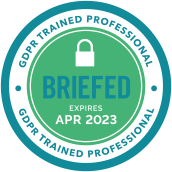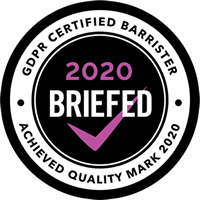
WALKERS (BERMUDA) LTD V BERMUDA BAR COUNCIL [2019] UKPC 25
13th June 2019
Introduction
Michael Todd QC and Philip Gillyon appeared for the successful Appellant, Walkers (Bermuda) Ltd (“WBL”), in the recent hearing before the Judicial Committee of the Privy Council (judgment handed down on 10 June 2019).
The principal issue in the appeal was the meaning of “control” in a corporate context, and, specifically, the meaning of “controlled by Bermudians” in s 114(1)(a) of, and para 1(1) of Part I of the Third Schedule to, the Companies Act 1981, of Bermuda (“CA 1981”).
Background
Since 2009 Bermudian lawyers have been able to provide the professional services in Bermuda through limited liability companies (“professional companies”). There are statutory requirements governing ownership and management of such companies. One such requirement under CA 1981 is that a professional company must be a “local company” as defined by s 2 CA 1981 (unless it is an exempt company or licensed by the Minister of Finance to carry on business in Bermuda): a local company must be “controlled by Bermudians”.
In October 2015 a Bermudian barrister, Kevin Taylor, incorporated WBL with a view to providing legal services through WBL under the “Walkers” brand name. Mr Taylor legally and beneficially owned, and owns, 99% of the shares in WBL and 1% was owned by another Bermudian barrister. Mr Taylor was, and is, the sole director of WBL.
Draft agreements were prepared between WBL and Walkers Global, an international partnership established under the laws of the Cayman Islands which carries on an offshore law business in several jurisdictions, namely a Licensing and Services Agreement (“LSA”) and a Loan Agreement (“LA”) (“the Agreements”). The LSA would, if executed: govern the relationship between WBL and Walkers Global; permit WBL to provide legal services under the Walkers brand; require WBL to pay a licence fee to Walkers Global; and enable WBL to draw on extensive services provided by Walkers Global. The LA would, if executed, provide for Walkers Global to lend up to US$5m to WBL.
The proceedings
Mr Taylor applied to the Bermuda Bar Council for a certificate of recognition of WBL as a professional company under s 16C of the Bermuda Bar 1974 (“BBA 1974”). The Bar Council refused to grant a certificate of recognition, on the ground that WBL would not be “controlled by Bermudians” as a result of the commercial influence of Walkers Global over it through the Agreements. WBL appealed against the refusal to the Bermuda Supreme Court, under s 16C BBA 1974.
At first instance, Kawaley CJ:
(i) allowed WBL’s appeal;
(ii) upheld WBL’s argument that the requirement that a local company must be “controlled by Bermudians in para 1(1) of the Third Schedule to CA 1981 meant corporate control (i.e. control of a company’s decision-making by its board of directors or shareholders in general meeting);
(iii) rejected the Bar Council’s argument that commercial control or influence was sufficient for para 1(1); and
(iv) directed the Bar Council to grant a certificate of recognition to WBL.
The Bar Council appealed to the Court of Appeal for Bermuda. The Court of Appeal (Baker, President, and Bell and Clarke JJA): allowed the Bar Council’s appeal, holding that commercial control falling short of corporate control was sufficient for the test of “controlled by Bermudians” in para 1(1). Accordingly, the Court of Appeal set aside the relevant parts of the order of Kawaley CJ.
WBL appealed to the Privy Council, which allowed WBL’s appeal. The principal judgement was given by Lord Hodge (with whom Lords Reed, Kerr and Briggs agreed); Lady Arden gave a concurring judgment. The Privy Council approved the reasoning of Kawaley CJ (save in one minor, immaterial respect) that “controlled by Bermudians” in para 1(1) of the Third Schedule to CA 1981 refers to corporate rather than commercial control; and rejected the analysis of the Court of Appeal.
The decision is significant in that it defines the requirement of “control” and “controlled by Bermudians”, not only for professional companies” through which Bermudian lawyers offer legal services as permitted by Part IVA BBA 1974, but also for all “local companies” (as defined by s 2 CA 1981), seeking to carry on business in Bermuda, which are not exempt companies and which have not obtained a licence from the Minister of Finance to do so.
The judgment of the Privy Council is at: https://www.jcpc.uk/cases/docs/jcpc-2017-0060-judgment.pdf.



